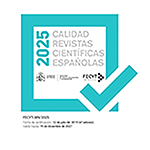Capitalism without Capitalism. Fascism According to Žižek
Abstract
This article explores the theorisation of fascism across Žižek’s oeuvre, from the 1980s to the present. It situates his Lacanian response to the problematic category of ‘totalitarianism’ in its original Yugoslav context, foregrounding the critical function of the aesthetic praxis of over-identification, embodied by the Neue Slowenische Kunst and Laibach, in Žižek’s reflections. The article explores the manner in which Žižek provides distinctive answers to the classic topoi of critical theory’s confrontation with fascism: the typology and taxonomy of fascisms; the nature of fascist fantasy; the perverted utopian content and popular impact of fascism. Above all, it investigates the central place that the theorisation of fascism has in Žižek’s reformation of ideology-critique, especially in terms of the lessons it harbours about the functioning of the social law and the unconscious under capitalism.
Downloads
##submission.format##
Licenza
La revista Res Publica. Revista de Historia de las Ideas Políticas, para fomentar el intercambio global del conocimiento, facilita el acceso sin restricciones a sus contenidos desde el momento de su publicación en la presente edición electrónica, y por eso es una revista de acceso abierto. Los originales publicados en esta revista son propiedad de la Universidad Complutense de Madrid y es obligatorio citar su procedencia en cualquier reproducción total o parcial. Todos los contenidos se distribuyen bajo una licencia de uso y distribución Creative Commons Reconocimiento 4.0 (CC BY 4.0). Esta circunstancia ha de hacerse constar expresamente de esta forma cuando sea necesario. Puede consultar la versión informativa y el texto legal de la licencia.









